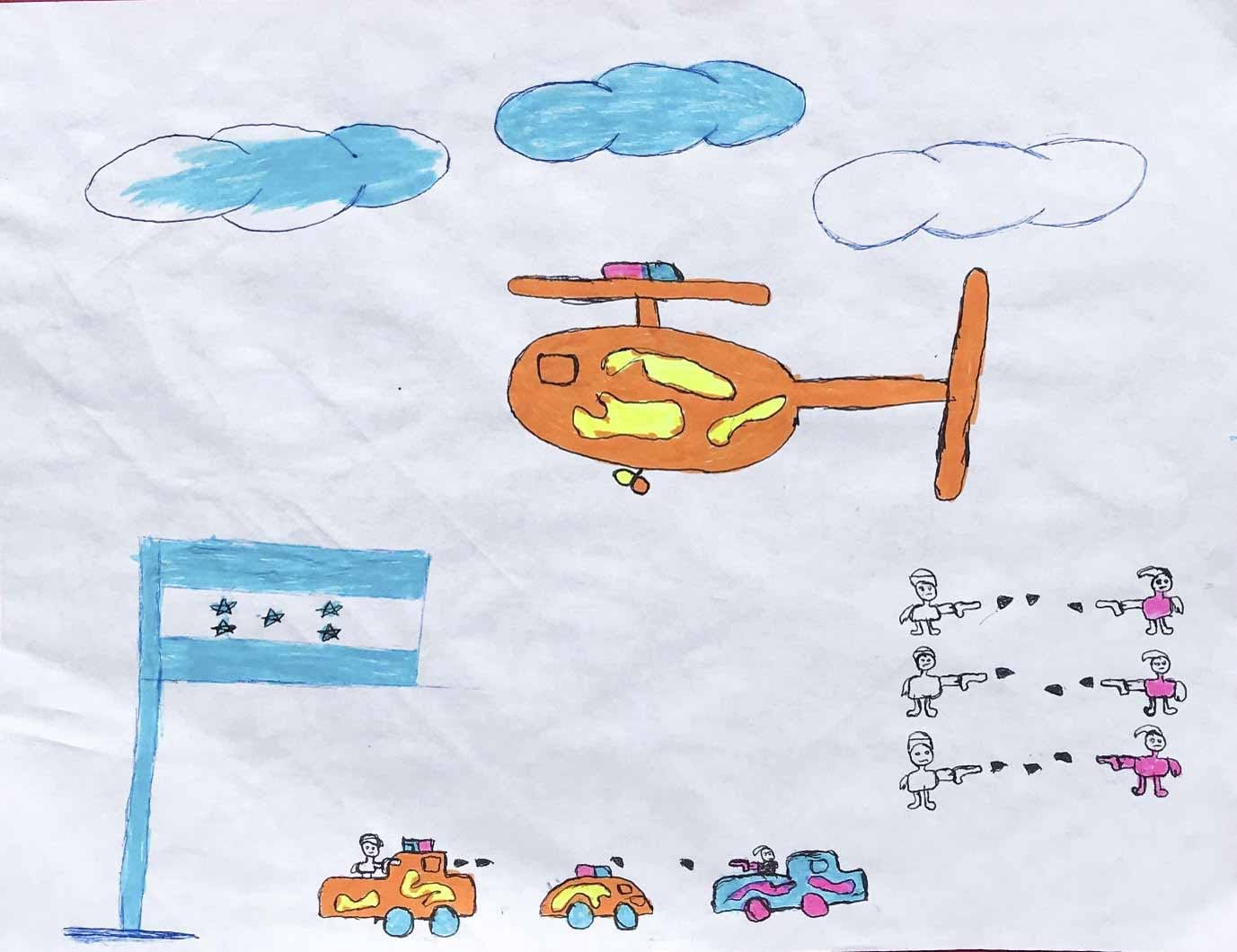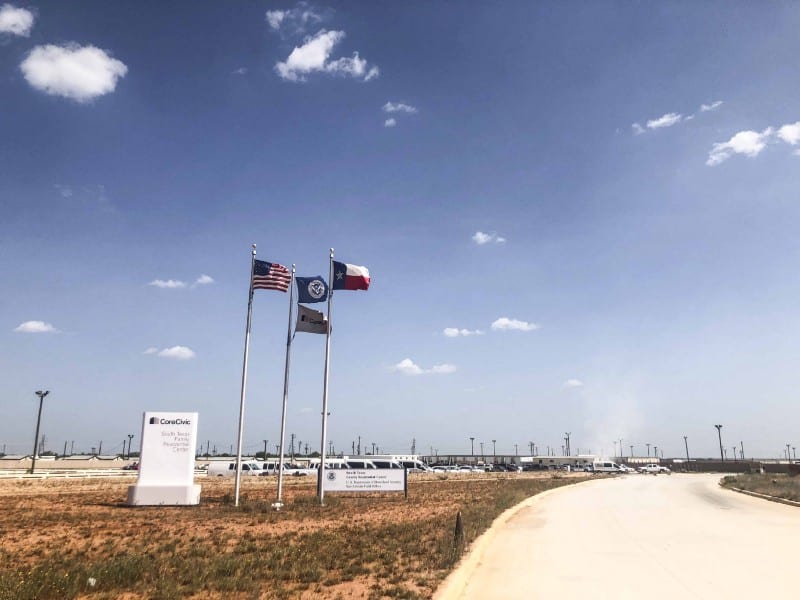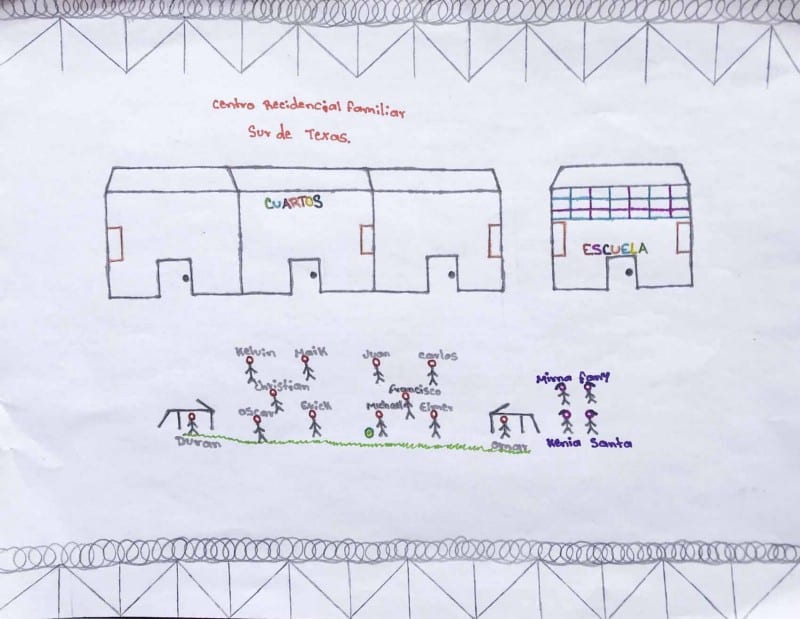
Kristel y Mario huyeron de la violencia en Honduras, pero fueron separados y detenidos durante cinco meses. Ahora vuelven a empezar.
El pasado mes de julio, Jean Kim Chaix dejó su casa en Nueva York y viajó a Texas para trabajar como intérprete voluntario en el grupo de servicios jurídicos de inmigración RAICES. Kim es inmigrante, creció en Nicaragua y Francia y habla español con fluidez. Tras una carrera como reportero de televisión, Chaix se dedicó a la conservación de la fauna y ocasionalmente trabajó como voluntario con grupos de inmigrantes cerca de su casa en Brooklyn.
Pero Chaix no estaba preparado para lo que encontró en Texas. En un centro de detención conoció a Kristel y Mario*, una madre y su hijo de 10 años que habían huido de Honduras para pedir asilo en Estados Unidos. Conmovido por su historia, empezó a trabajar por su liberación y se ofreció a alojarlos en su sótano hasta que pudieran encontrar un alojamiento más permanente.
Tras cinco meses detenidos, Kristel y Mario pudieron mudarse con Chaix y su familia. Borderless habló con Chaix y su amiga Christina Kornilakis, una voluntaria que ayuda a Kristel y Mario. Chaix está intentando recaudar $25.000 a través de una Campaña GoFundMe para ayudar a cubrir necesidades básicas como la alimentación y la atención médica de la madre y el hijo durante un año.
Chaix empezó contando a Borderless cómo conoció a Kristel y Mario.
Chaix: El centro de detención en el que estaban Kristel y Mario no se llamaba centro de detención. Tiene un nombre más benigno, Centro Residencial del Condado de Karnes. El edificio es de reciente construcción y tiene una sola planta. Inicialmente no parece un centro de detención cuando entras, pero tienes que pasar por todos estos detectores de metales y puntos de seguridad.
Cuando entras en el centro, te llevan a una sala de visitas con cubículos cerrados que se supone que están insonorizados. Y es allí donde conoces a los detenidos que han solicitado apoyo jurídico. Así conocimos a Kristel y Mario. Fueron nuestro primer caso.
Las vimos el lunes y acababan de reunirse el sábado. A los diez minutos de hablar con nosotros, Kristel estaba llorando. No se trataba sólo de lo que le había ocurrido en Honduras, sino de la separación y de cómo se había llevado a cabo esa separación. El trauma que sufrió fue algo que nos conmovió e indignó muy rápidamente.
En Honduras, Kristel había sido agredida repetidamente por un hombre que la amenazaba con encontrarla fuera donde fuera. Ella había intentado huir de él y se había trasladado a otra ciudad donde vivía su familia, pero él la siguió hasta allí. Esto siguió ocurriendo durante nueve meses y luego amenazó no sólo con matarla a ella sino también a Mario si intentaba marcharse.
Este hombre tenía vínculos con la policía, por lo que acudir a las autoridades no era una opción para ella. Así que hizo lo que pensó que era su única opción: huir con su hijo. Tuvo que dejar atrás a su hija de cuatro años porque temía que no sobreviviera al viaje.
Kornilakis: Dicen que uno no se va de casa a menos que su casa sea la boca de un tiburón y, literalmente, no podría ser más cierto. Simplemente no había opción para ella si quería seguir viva y que su hijo siguiera vivo.
Chaix: Nunca tuvo intención de venir a Estados Unidos. Nunca quiso salir de Honduras. Sólo a causa de las amenazas y los peligros para su vida y la de su hijo decidió salir de Honduras para venir a EE.UU. Kristel y Mario salieron en mayo del año pasado y ella tardó unas dos semanas en llegar a la frontera.

El centro residencial del condado de Karnes donde Kristel y Mario estuvieron retenidos en Texas. Fotografía facilitada por Jean Kim Chaix y Kate Chaltain.
Kornilakis: Cruzaron la frontera con Texas y fueron separados inmediatamente. Las madres y los padres fueron llevados a un lado y los niños a otro. Y pensaron que iba a ser algo temporal mientras los procesaban. Pero cuando Kristel y las otras madres volvieron al centro, sus hijos ya no estaban.
Estuvieron separados 30 días y durante las dos primeras semanas ella no tuvo ninguna información sobre dónde estaba Mario, quién lo cuidaba y cómo lo cuidaban. Nunca le dieron un recibo ni ningún documento. Sólo tenía un número de teléfono que resultó ser erróneo y al que nadie contestaba. Gracias a la ayuda de un abogado voluntario, pudo localizarlo al cabo de varias semanas. Pero incluso ahora, la única información que tiene sobre aquella época procede del propio Mario, cuando le ha contado lo que le había ocurrido.
Chaix: Estar detenida fue muy traumático para ella. Hubo un momento en que ella y las otras madres fueron llevadas ante un juez y tuvieron que llevar monos de prisión de color naranja y grilletes en los tobillos y esposas. Kristel nos ha contado lo traumático que fue, porque en su mente ese tipo de trato sólo estaba reservado para los peores criminales de este país.
Además, fue testigo de cosas terribles. Hace apenas dos días me contaba que una de las madres llevaba en brazos a un niño de cinco años y que los agentes del ICE se lo arrancaron por la fuerza. Le cogieron las muñecas y tuvo que soltar al niño. Se llevaron a este niño de cinco años y a otros niños que acababan de ser separados de sus padres y los subieron al autobús en el que iban Kristel y Mario. Recuerda ver a las madres corriendo detrás del autobús y persiguiéndolo entre lágrimas.
Kornilakis: He trabajado con muchos niños que fueron separados de sus padres y no recibieron ninguna información. Y cuando se reunieron, estaban muy enfadados. "¡Te odio! Ya no eres mi madre". Mario y Kristel definitivamente pasaron por eso. Luego tuvieron que pasar juntos cuatro meses más en el centro de detención, con esos sentimientos y sin nadie que les ayudara a procesar nada.
Chaix: Su vida sigue en el limbo. Después de que se reunieron, no significa que todo está bien. Como, ahora que están juntos de nuevo van a ser liberados y empezar a vivir una vida normal. No, lejos, lejos de eso.
Kristel no tiene fecha de juicio para su solicitud de asilo y podrían pasar años antes de que se complete su caso. Podría esperar mucho tiempo antes de tener siquiera un permiso de trabajo. Y conocemos a muchas otras madres que acaban sin hogar o son víctimas de nuevos abusos porque viven en la sombra. No hay absolutamente ningún apoyo a nivel federal, estatal o municipal para atender a las personas que ahora mismo son víctimas de este desastre humano que estamos viviendo.
Así que corresponde a la comunidad, como Christina, yo mismo y otros, dar un paso al frente. Y mucha gente dará un paso al frente y hará lo correcto.

*Los nombres han sido modificados para proteger su seguridad.

